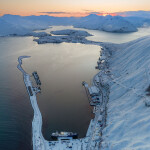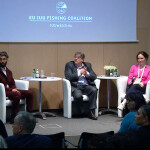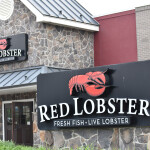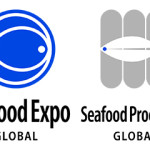Relations between France and the United Kingdom have been less than cordial over the past few weeks as the U.K.’s under-15-meter scallop fleet has exercised its right to fish in French waters.
French scallop fishermen, who are currently banned from taking any scallops themselves until the scallop breeding season ends, clashed with their European counterparts in a series of dangerously aggressive high-seas manoeuvres caught on camera.
The fracas arose because, under the terms of the E.U. Common Fisheries Policy, fishing fleets from any member state have equal access to E.U. waters. However, individual countries can limit access to E.U. fleets within 12 nautical miles of their own coastlines. This means that U.K. boats can fish for scallops year-round in the Baie de Seine area off the north coast of France, despite French law preventing its own fleet from fishing between 15 May and 1 October to conserve stocks.
This disparity of access has been a flash-point for a number of years, with the French accusing the U.K. fleet of “pillaging” and taking deliberate advantage of a free reign on stocks they consider to be their own. Larger U.K. vessels have respected the French closure since 2015, when they were offered additional fishing effort in the so-called “Western Waters” of the Northeast Atlantic and North Sea in return. This allows those scallop vessels to operate until the end of the year. However, U.K.-flagged vessels under 15 meters in length have not been included in this deal and have continued to fish in French waters.
At a meeting last week in London, fishermen from the under-15-meter fleet finally agreed to respect the French fishing restrictions, provided they were compensated financially, and a meeting was set for Friday, 7 September to agree on the finer points of a deal. However, fishermen from the two nations failed to reach agreement during their negotiations.
French fishing leader Dimitri Rogoff accused the U.K. of going back on the London agreement, but Mike Park, chief executive of the Scottish White Fish Producers Organisation, told SeafoodSource that he believed that suitable progress had been made at the London meeting to make the follow-up round something of a formality.
“Both sides worked hard to reach an agreement, but in the end the gap in the two sides’ positions regarding the level of compensation for the under =15-meter vessels was just too big to bridge,” Park said. “These vessels make one-third of their annual income from a three-week unhindered period in the area and it is only right that they are compensated for moving out of the Baie de Seine to other less abundant areas.”
There are fears of further clashes between the two sides if an agreement cannot be reached. However, Park is confident that a solution will be found.
“It’s in everyone’s best interest and as there is now a will at government level to try to resolve the issue, I think we can make it work,” he said.
The U.K. scallop fishery is worth more than GBP 120 million (USD 155 million) per year and supports around 1,200 jobs. Over 98 percent of U.K.-landed scallops are caught by vessels using towed fishing gear, with hand-dived scallops making up just a fraction of the catch.
More than 60 percent of U.K.-landed scallops are exported to European countries, particularly France, which provides further fuel for the French protests of an unfair system.
A 2016 report by Seafish, the U.K. authority on seafood, showed evidence over the previous decade of increasing fishing effort but declining catch rates for vessels that are revenue-dependent on scallops. Those vessels spent 53 percent more dredging days at sea to catch roughly the same amount of scallops as in previous years.
However, since there are no quotas limiting catches of scallops, scallop dredging remains an attractive option for vessel owners who do not have good options for catching quota species.






